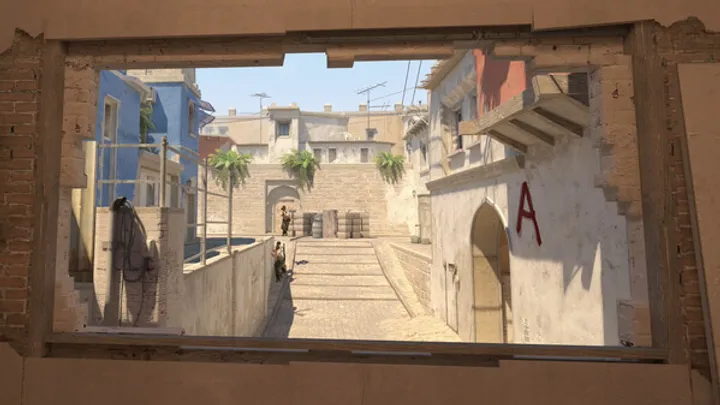Secret Neighbor: Hello Neighbor Multiplayer is one of the most thrilling social deception games available today. Unlike standard survival titles, it blends teamwork, suspicion, and strategy. A group of children attempts to save their friend from the basement, but one of them is secretly the Neighbor in disguise. This unique mix of trust and betrayal creates intense matches where communication, timing, and psychology are more important than raw mechanics. For players who want to improve, this comprehensive tips and guides article provides detailed strategies for both children and the Neighbor, helping you win more consistently and enjoy the experience to its fullest.
Tips for Understanding the Core Gameplay
Before diving into strategies, it is important to understand the flow of the game. Children must search the house for keys and unlock the basement. The Neighbor, disguised as one of them, must stop their progress by eliminating or capturing them. Success depends on a delicate balance of cooperation and suspicion.
For new players, the first tip is to observe carefully. Learn the layout of the house, understand how objectives are structured, and pay attention to how other players behave. Awareness is your most powerful tool.
Tips for Playing as a Child
Children are designed to rely on teamwork. Each child has different roles or perks that can be maximized for better results. For example, some are better fighters while others excel at support. The key is to combine these strengths effectively.
Always stay in groups. Lone players are easy targets for the Neighbor. Working together reduces the chance of surprise attacks and allows for faster key searching. If you must explore alone, communicate your path so teammates know your movements.
Tips for Playing as the Neighbor
As the Neighbor, patience and deception are your best friends. If you reveal yourself too early, the children may overpower you or avoid you completely. The best strategy is to blend in and act like a normal teammate during the first stages of the match.
When suspicion is low, strike strategically. Target isolated children first, or wait for moments when confusion is high. You can also manipulate situations by encouraging distrust among teammates.

Communication Tips for Success
Secret Neighbor heavily depends on communication. Whether using voice chat or in-game signals, how you speak and what you say can determine victory or defeat.
Tips for children include sharing information openly, reporting key discoveries, and pointing out suspicious activity. Tips for the Neighbor include staying calm under accusations, deflecting blame, and using persuasive language to redirect suspicion.
Tips for Identifying the Neighbor
Spotting the disguised Neighbor before they act is one of the hardest but most rewarding skills. Look for inconsistencies in behavior. For example, a player who never picks up keys, avoids helping, or stays too close to others may be suspicious.
Do not rely only on gut feelings. Ask for evidence and compare stories with other players. Organized questioning can expose lies or highlight strange behavior patterns.
Tips for Building Trust with Teammates
Trust is fragile in Secret Neighbor. If players suspect each other constantly, the group may collapse, giving the Neighbor the advantage.
To build trust, share items, stick with groups, and be transparent about your actions. If you find a key, show it to others before using it. Taking responsibility for team objectives reduces doubt and strengthens bonds.

Tips for Deceiving as the Neighbor
The Neighbor must not only hide their identity but also create an environment of chaos. Pretending to be helpful is one of the best ways to gain trust. Carry items, participate in searches, and even defend others verbally to appear innocent.
Strike when the group is divided. Wait for two or three players to split from the rest, then eliminate them quietly. By controlling the tempo of suspicion, you can keep your cover longer and dismantle the team from within.
Tips for Managing Panic and Chaos
Chaos can break or make a match. For children, panic usually leads to mistakes, such as running alone or accusing innocents. The best approach is to remain calm, focus on objectives, and stay disciplined in communication.
For the Neighbor, chaos is an opportunity. Create confusion by spreading doubt, pretending to be a victim, or attacking in moments of distraction. Well-timed chaos often leads to easy eliminations.
Tips for Adapting to Different Playstyles
Every group of players has a unique style. Some teams are cautious, others reckless, and some are highly organized. The ability to adapt is key.
As a child, change your approach depending on group behavior. If the team is uncooperative, play defensively. If they are well-organized, stick close and support their momentum. As the Neighbor, take advantage of reckless groups, but use patience and subtle manipulation against disciplined ones.

Tips for Consistent Winning Strategies
Consistency comes from practice and reflection. After every match, review what went well and what failed. Did your group fall apart due to mistrust? Did you reveal yourself too early as the Neighbor? Learning from mistakes is part of the improvement process.
Winning consistently requires mastering three pillars: observation, communication, and adaptability. Whether you are playing as a child or the Neighbor, keeping these principles in mind will improve your performance over time.
Conclusion:
Secret Neighbor: Hello Neighbor Multiplayer thrives on the tension between trust and betrayal. It is not a game of pure mechanics but of strategy, psychology, and communication. By following these tips and guides—whether you are learning to build trust as a child, deceive effectively as the Neighbor, or manage chaos under pressure—you will become a stronger and smarter player. Over time, you will discover that the real game lies not just in finding keys or catching players, but in navigating the fragile bonds of trust that define every match.

















